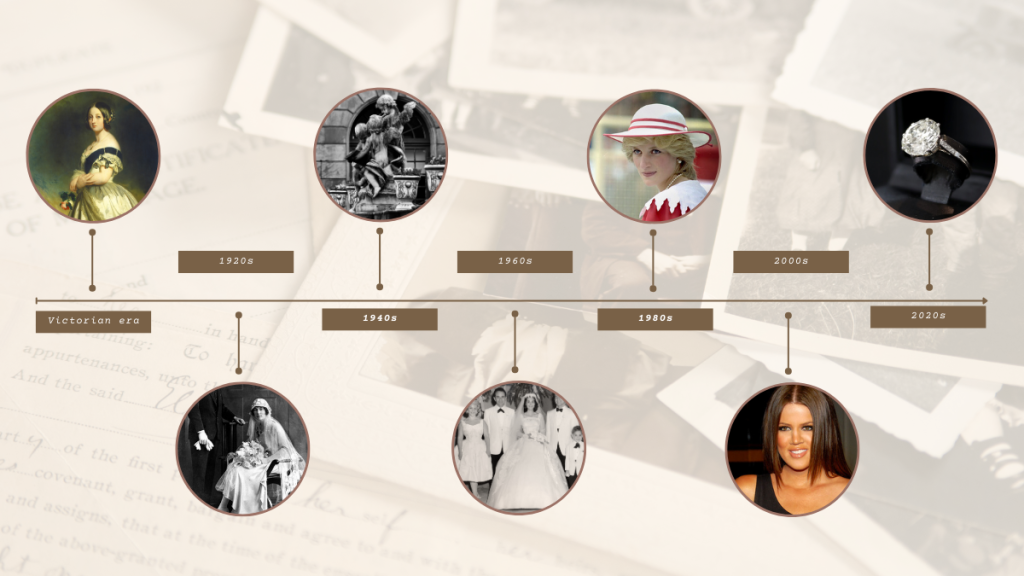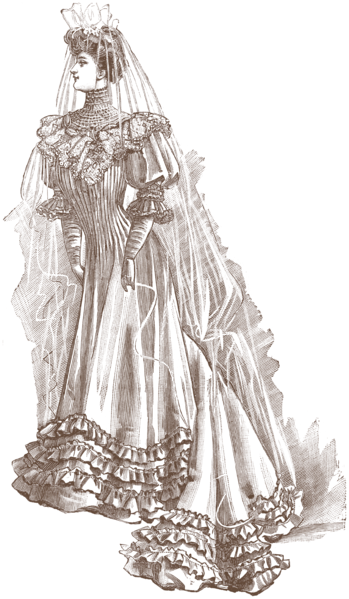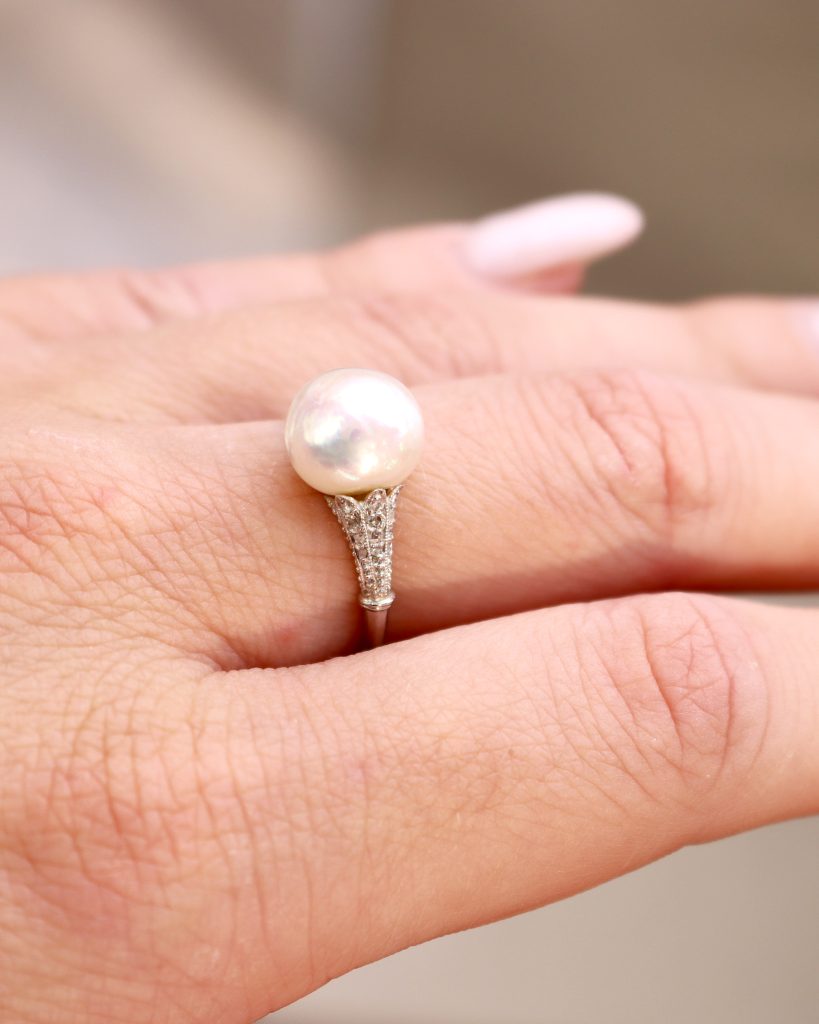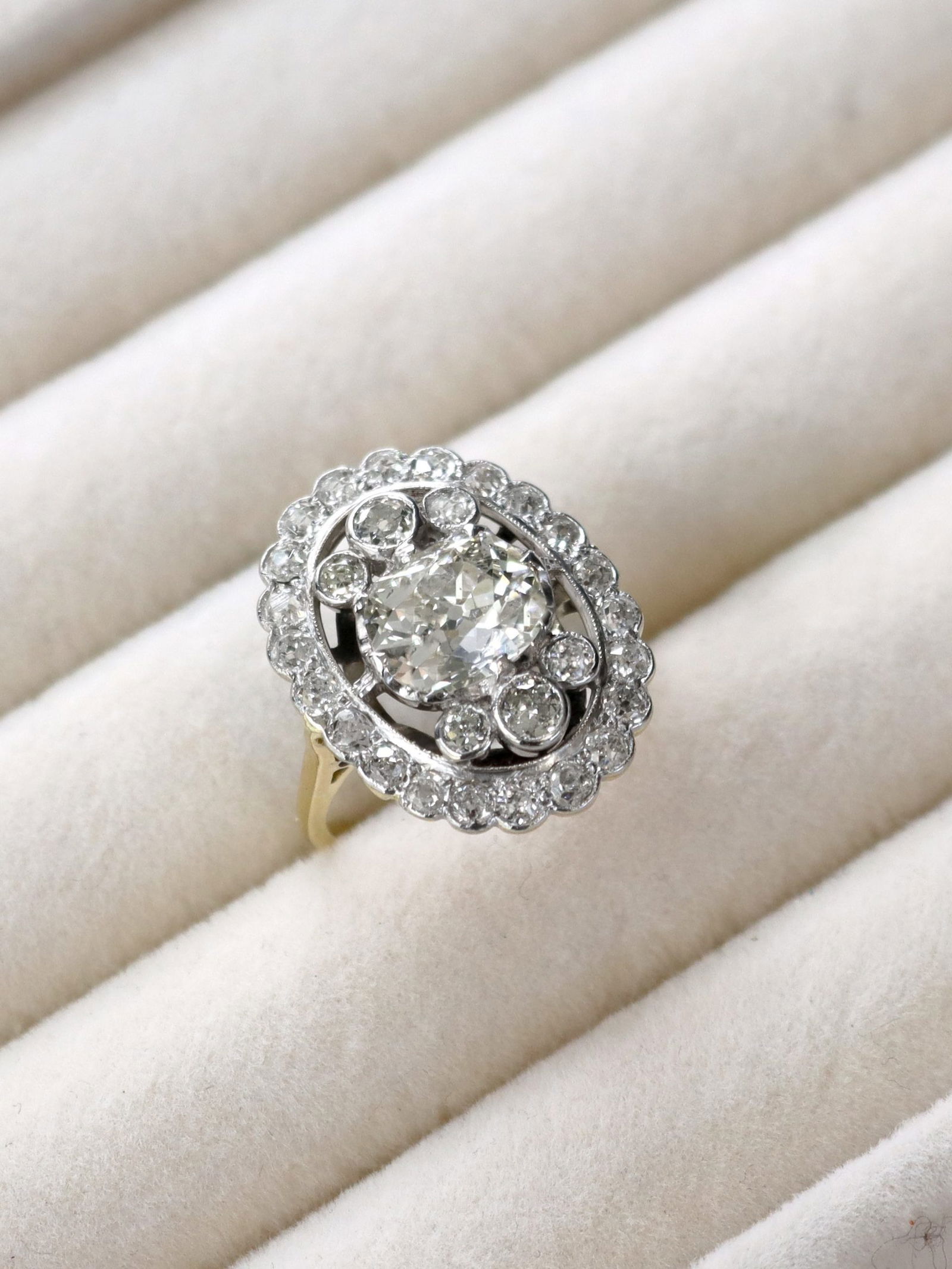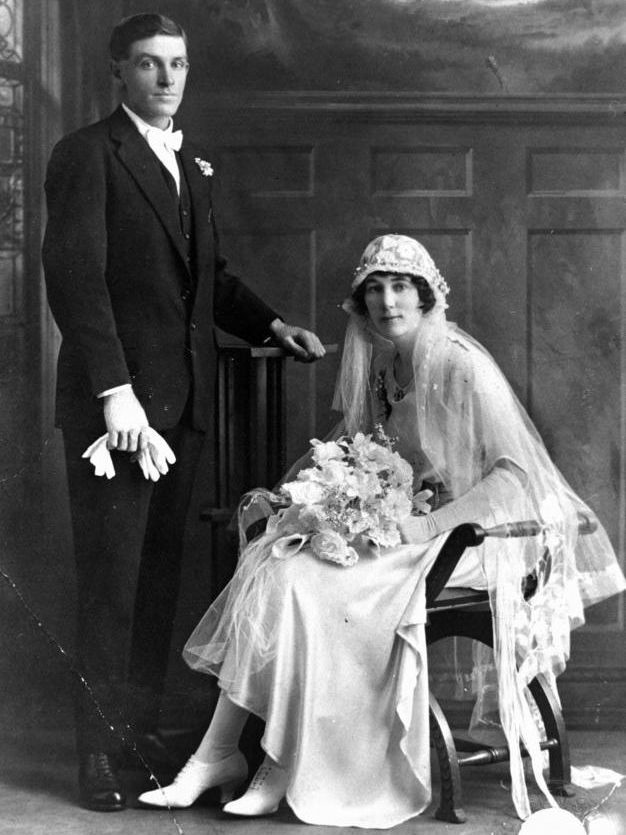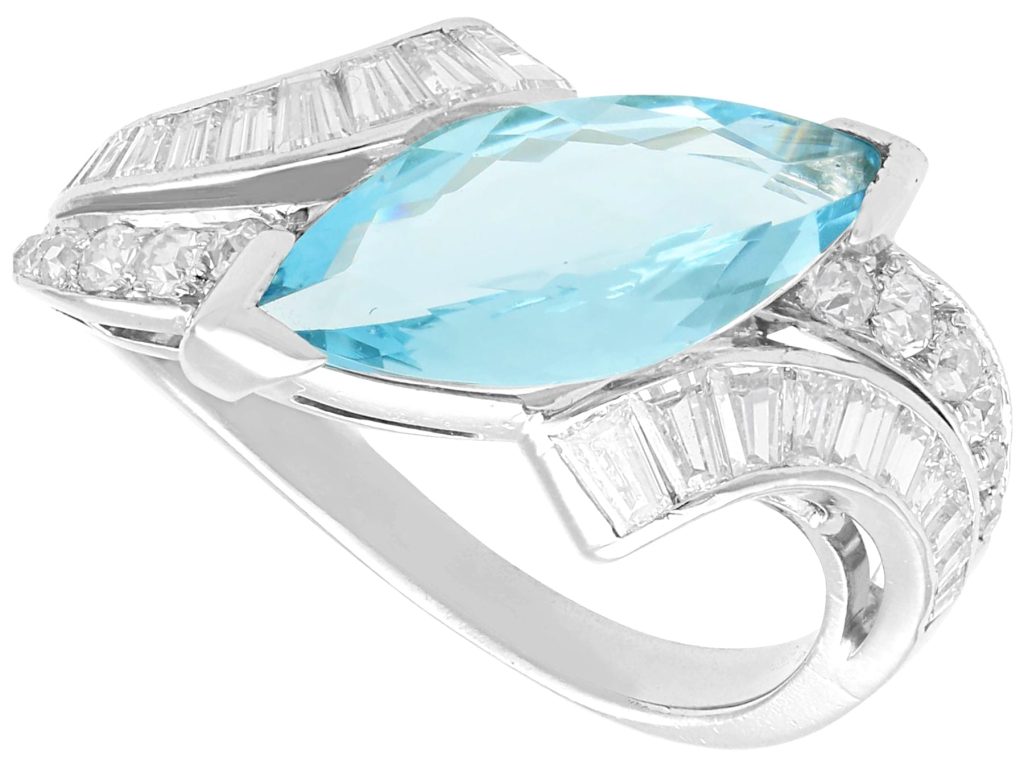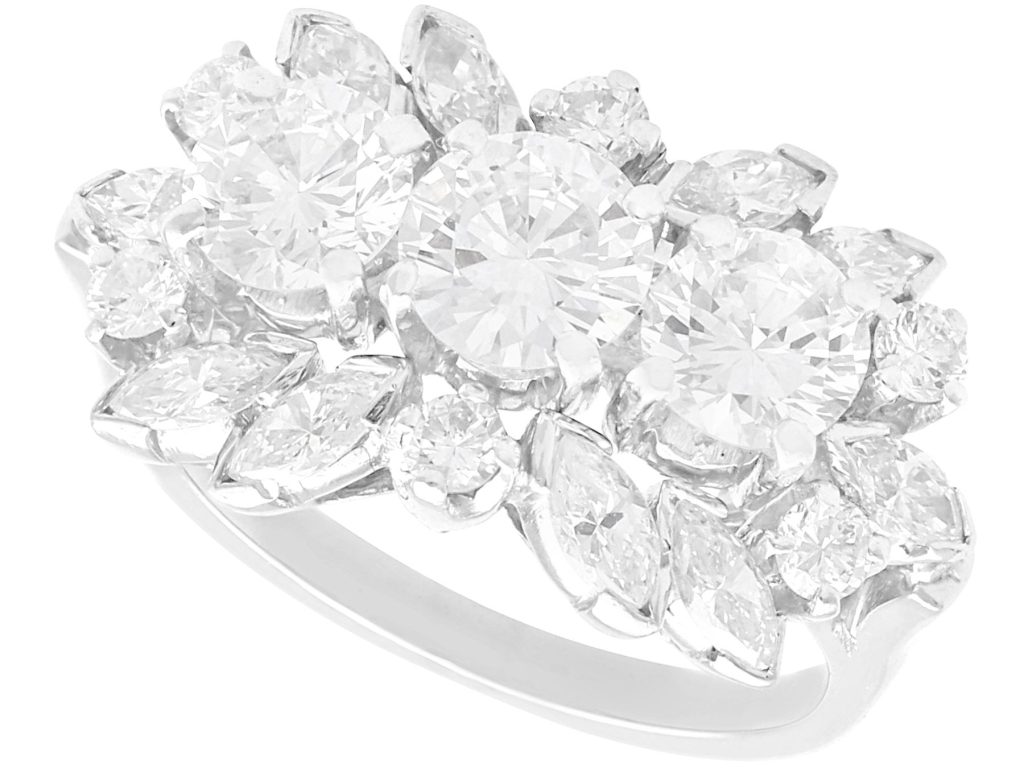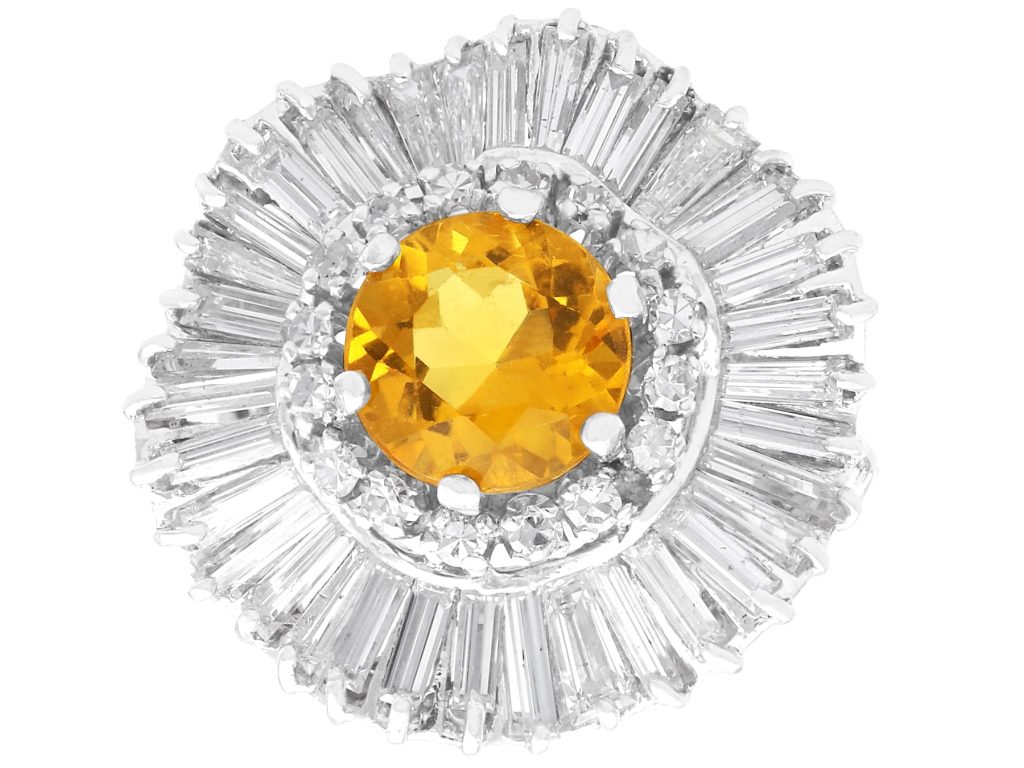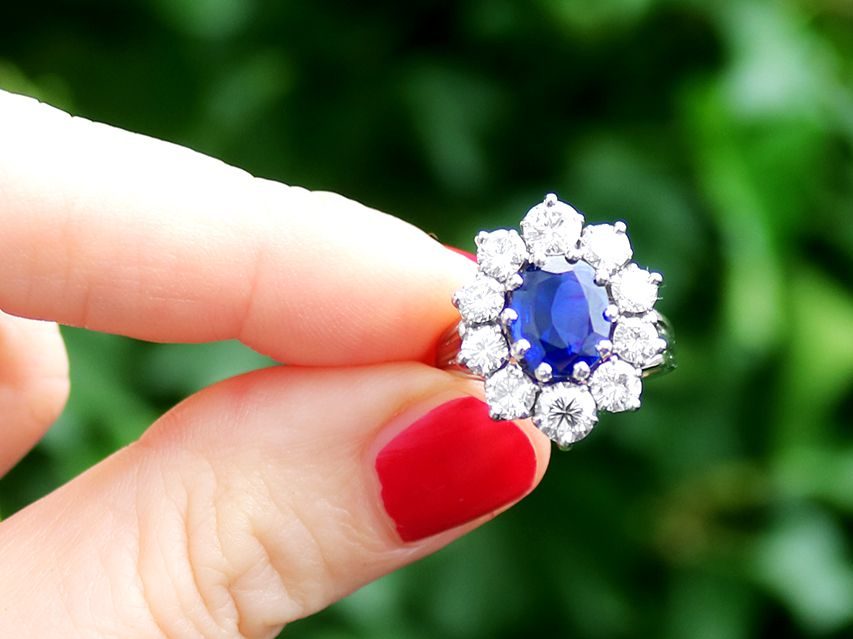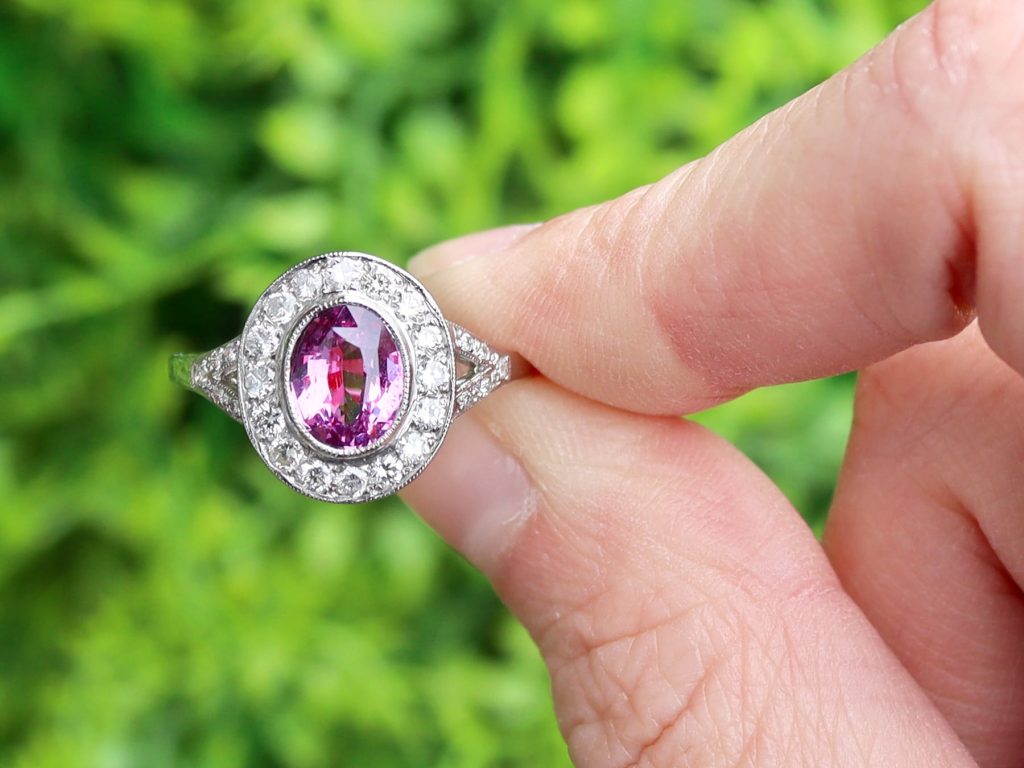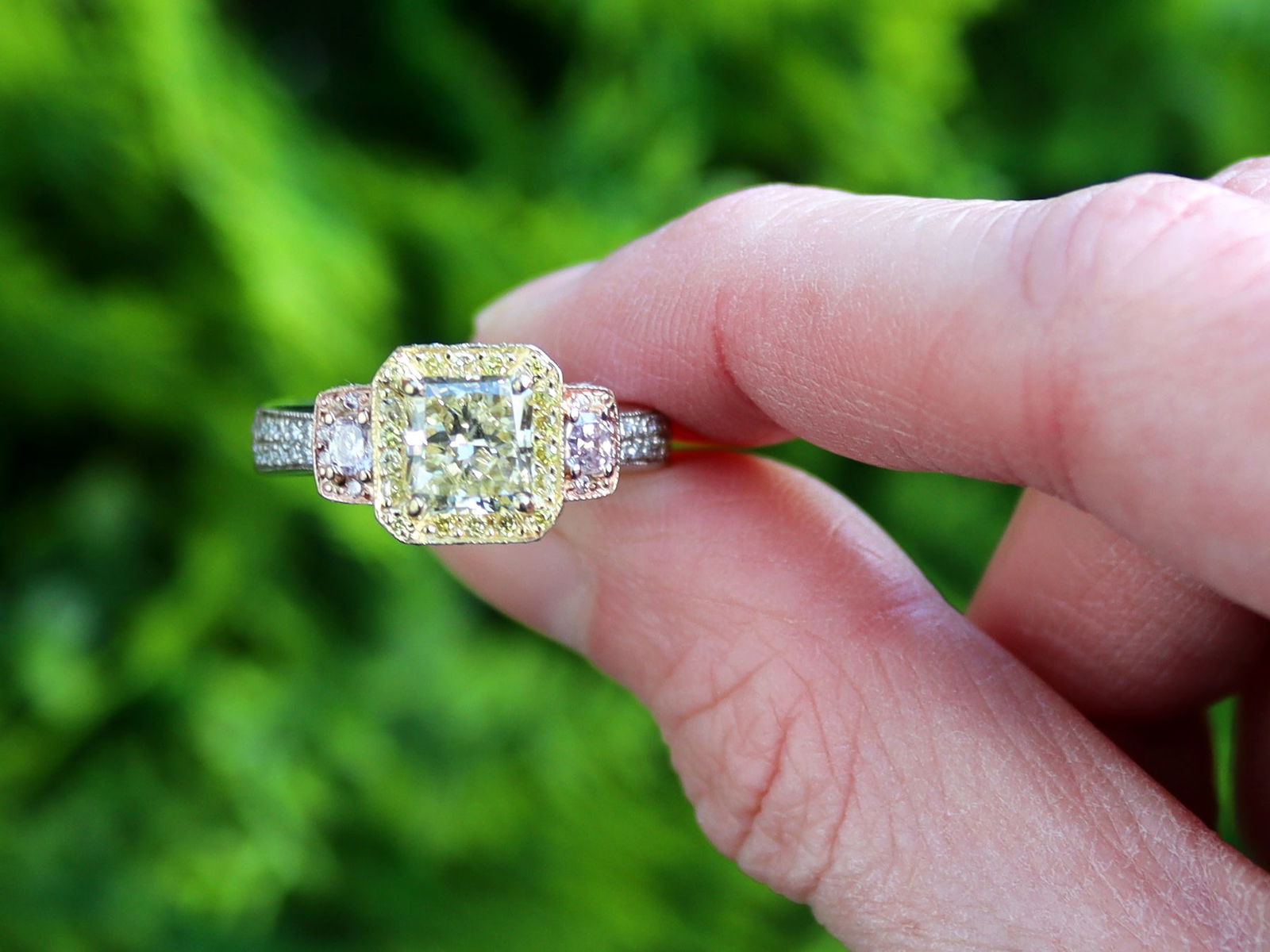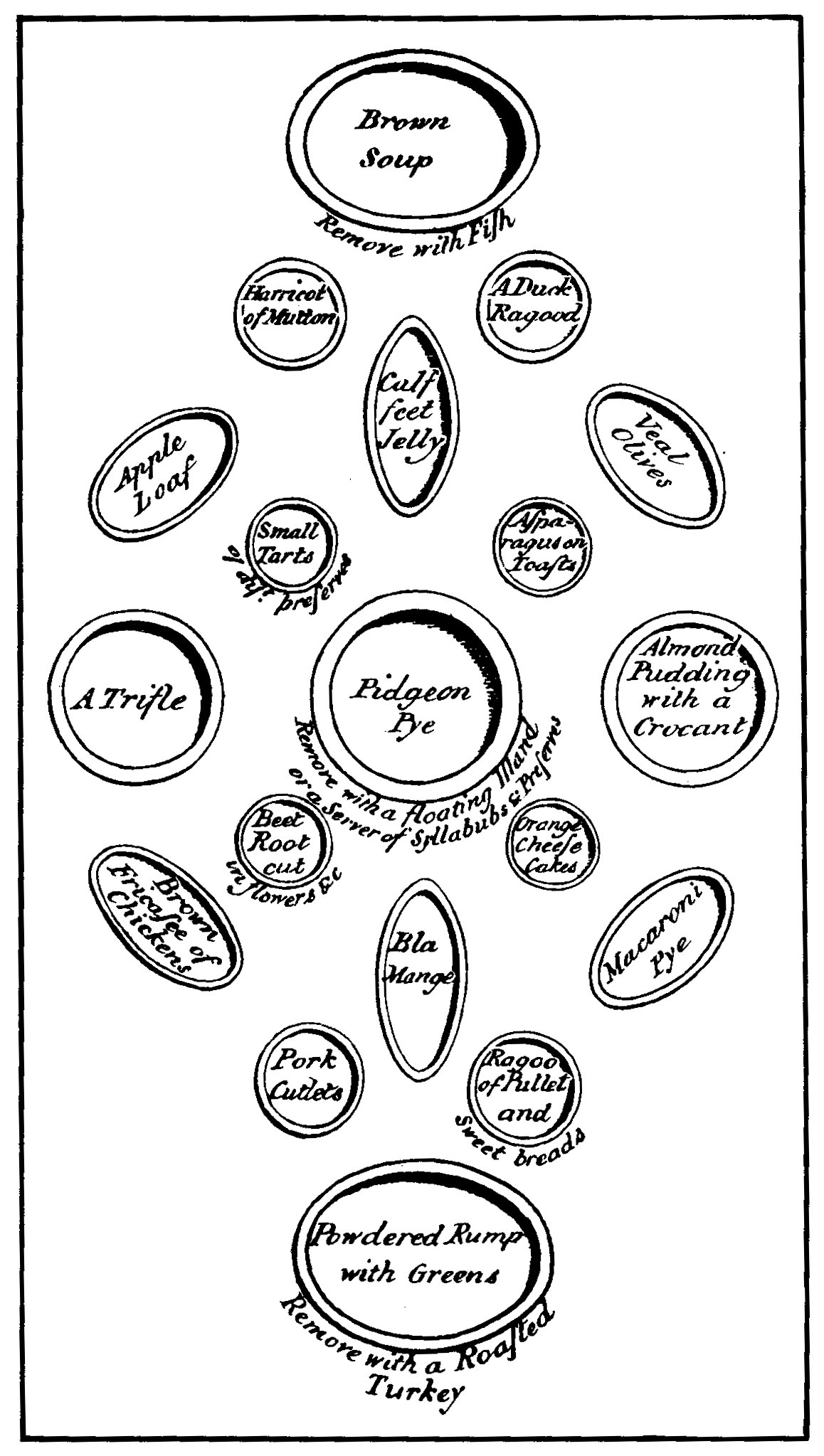Choosing an engagement ring is a big decision so finding a style that you’ll cherish for a lifetime is key. This guide will take you on a journey through the most iconic styles in history, showing you engagement ring trends through the decades and hopefully helping you find the perfect fit!
Victorian Engagement Rings
Starting with the eclectic styles of the Victorian era, a common motif throughout this period was the elaborate metal work, with ring shanks often featuring engraved decoration, filigree and scroll work, often inspired by nature. During a period of scientific discoveries, Victorians were fascinated by natural history and romanticised nature, celebrating exotic animal and fruits as the height of sophistication.
Victorian engagement rings at this time were largely yellow gold as it’s warm tone complimented the romantic and naturalistic themes of the early Victorian era as well as the more vibrant gemstones of the time. Sometimes the gold was alloyed with copper as a more affordable option for middle class customers.
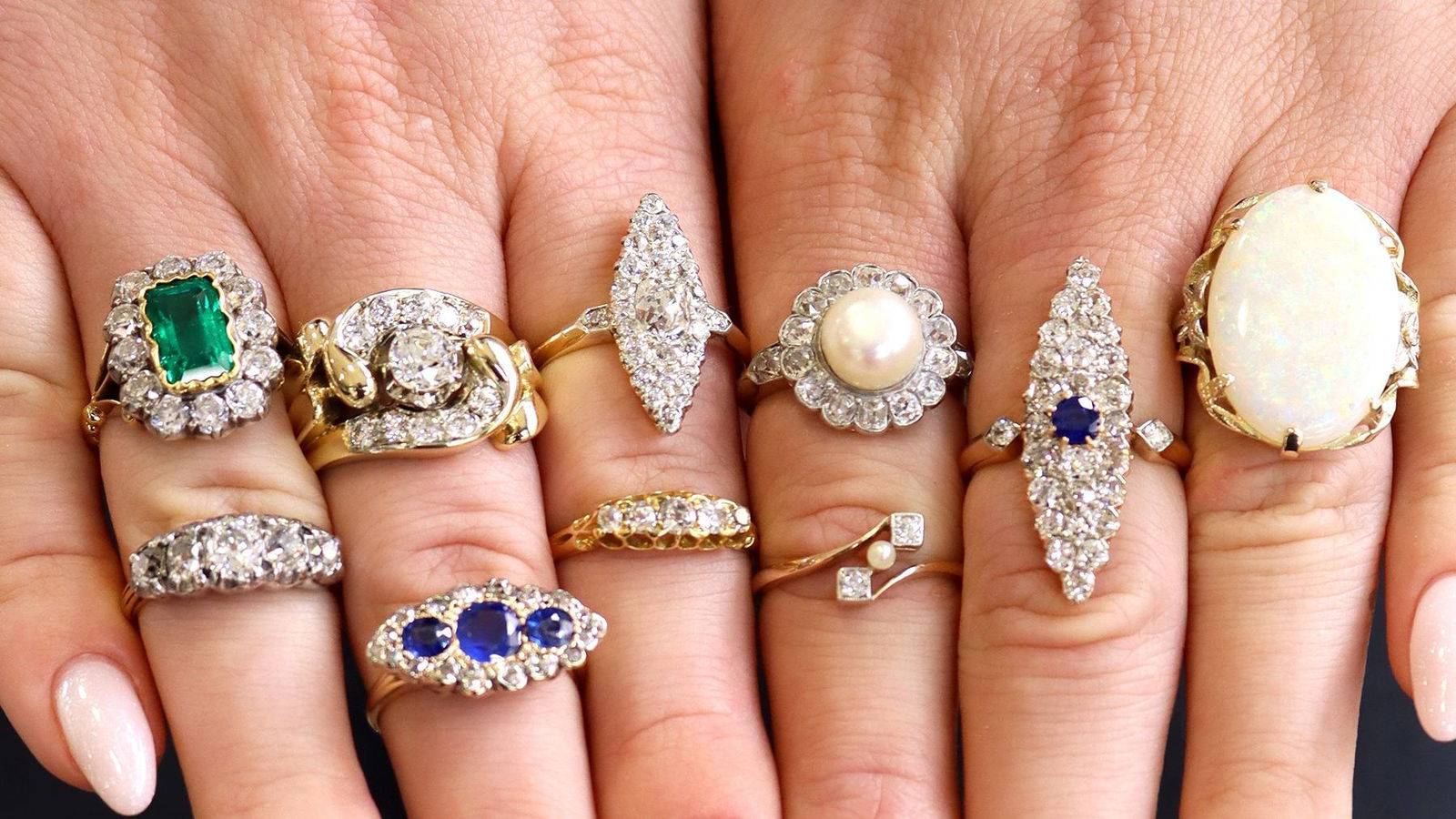
The discovery of diamond mines in South Africa in 1867 made diamonds more affordable and abundant, leading way for coloured emeralds, sapphires, amethysts and garments to appear rarer and more desirable. The Victorian’s sentimental values shine through the popularity of birthstone rings for betrothals as a sweet nod to their partner.
Edwardian Era Engagement Rings
The Edwardian era is often associated with light, bright and whimsical designs as an era that followed the darkness of Queen Victoria’s mourning period. The advances in platinum work made the metal a popular choice in jewellery, with its strength utilised to create fine millegrain decoration.
You might not know it but during the Edwardian era, pearls were considered more valuable than diamonds. Lustrous pearls hailed from faraway places like Australia and Africa and were worn by royalty and the upper class as a symbol of their wealth, status and power. Our collection of Edwardian engagement rings date from 1901 to 1914, abundant with diamonds, pearls any other gemstones!
1920s Engagement Rings
The roaring twenties was epitomised by the famous Art Deco style, full of geometric shapes, clean lines and symmetry. White metal was still favoured at this time and the continued use of platinum allowed for filigree detail work that allowed jewellers to create geometric lines and intricate designs lending to the symmetrical Art Deco style.
Rings were often more geometric in shape, often favouring the emerald, baguette or square cut feature stones or combining coloured gemstones to create contrasting boarders. Halo engagement rings were popular at the time, using metal work and pave set diamonds to create intricate boarders, often incorporating romantic motifs and metalwork through to the shoulders.
1930s Engagement Rings
The Art Deco style remained a dominant force but, as the decade progressed, 1930s engagement rings evolved beyond the structured geometric style. Jewellers experimented with bolder combinations, mixing sharp-edged baguette and emerald cuts with the soft curves of round brilliant diamonds to create a striking contrast.
While the U.S. grappled with the Great Depression, Britain faced its own economic challenges, leading to a shift in engagement ring styles. Platinum was still the preferred choice for those who could afford it, but white gold emerged as a popular and more accessible alternative. Designs became slightly more refined, featuring stepped settings and mixed-cut diamonds—pairing the crisp lines of baguettes with the elegance of round or marquise stones for a perfect balance of structure and sophistication.
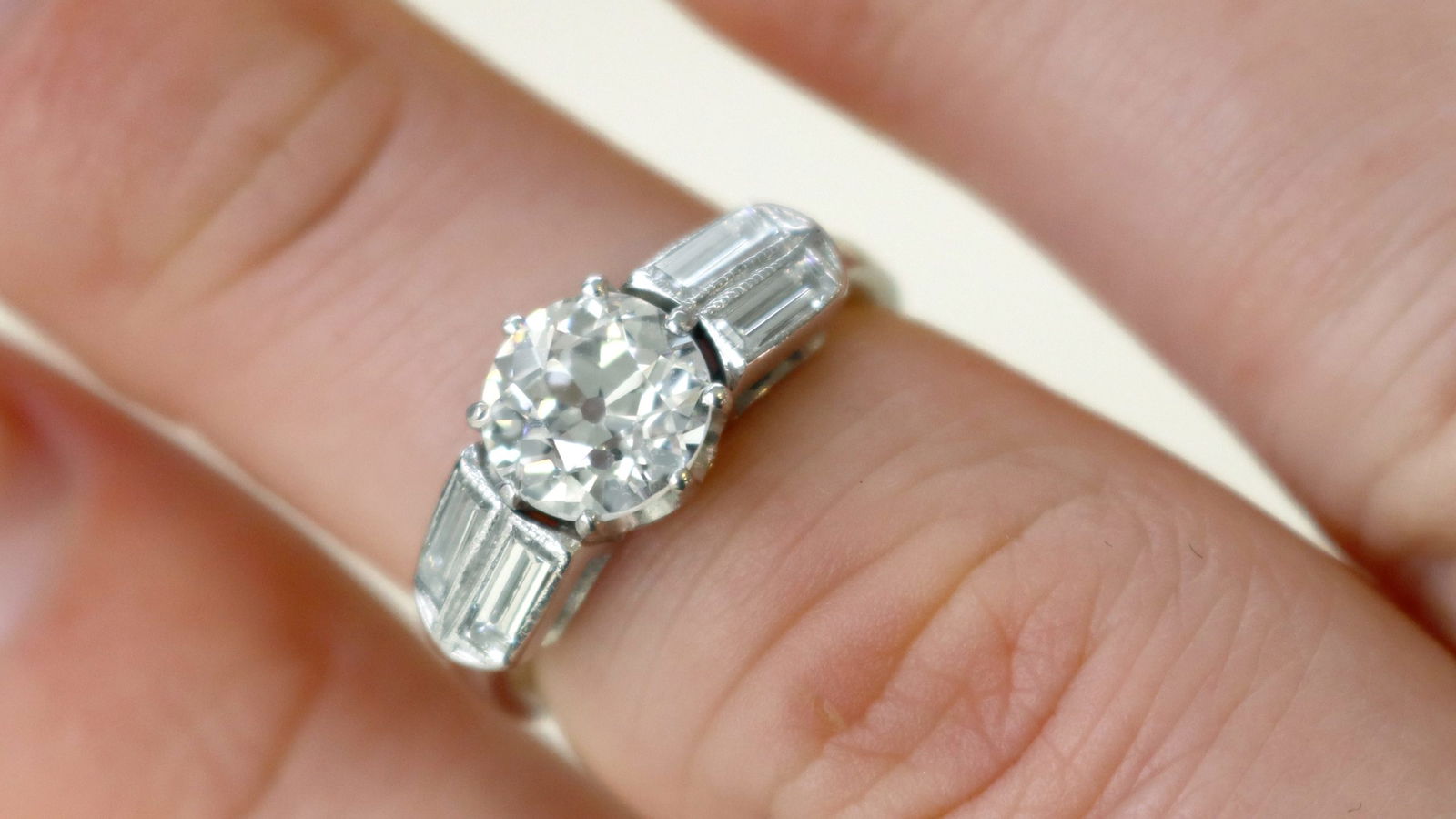
Despite financial hardships, glamour was still in demand, with Hollywood’s Golden Age shaping trends, with film stars’ dazzling jewels inspiring British couples to seek timeless yet stylish designs.
1940s Engagement Rings
The 1940s was all about doing more with less. With World War II lasting from 1939 to 1945 and its effects continuing well beyond, 1940s engagement ring designs reflected both creativity and necessity.
Platinum was declared a strategic material, limiting its availability for non-military uses such as jewellery. This only increased its desirability, with those who could afford it seeking out the rarer metal. In response to its scarcity, yellow and rose gold made a comeback, adding warmth and richness to engagement ring designs.
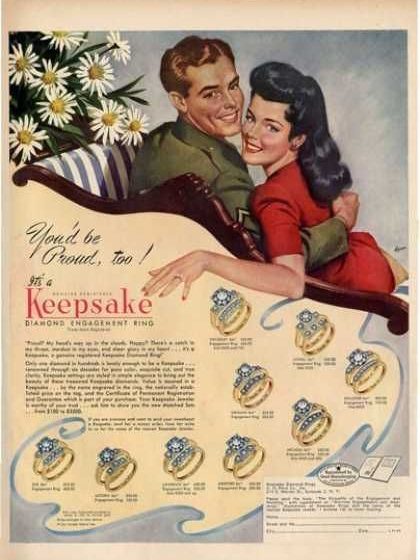
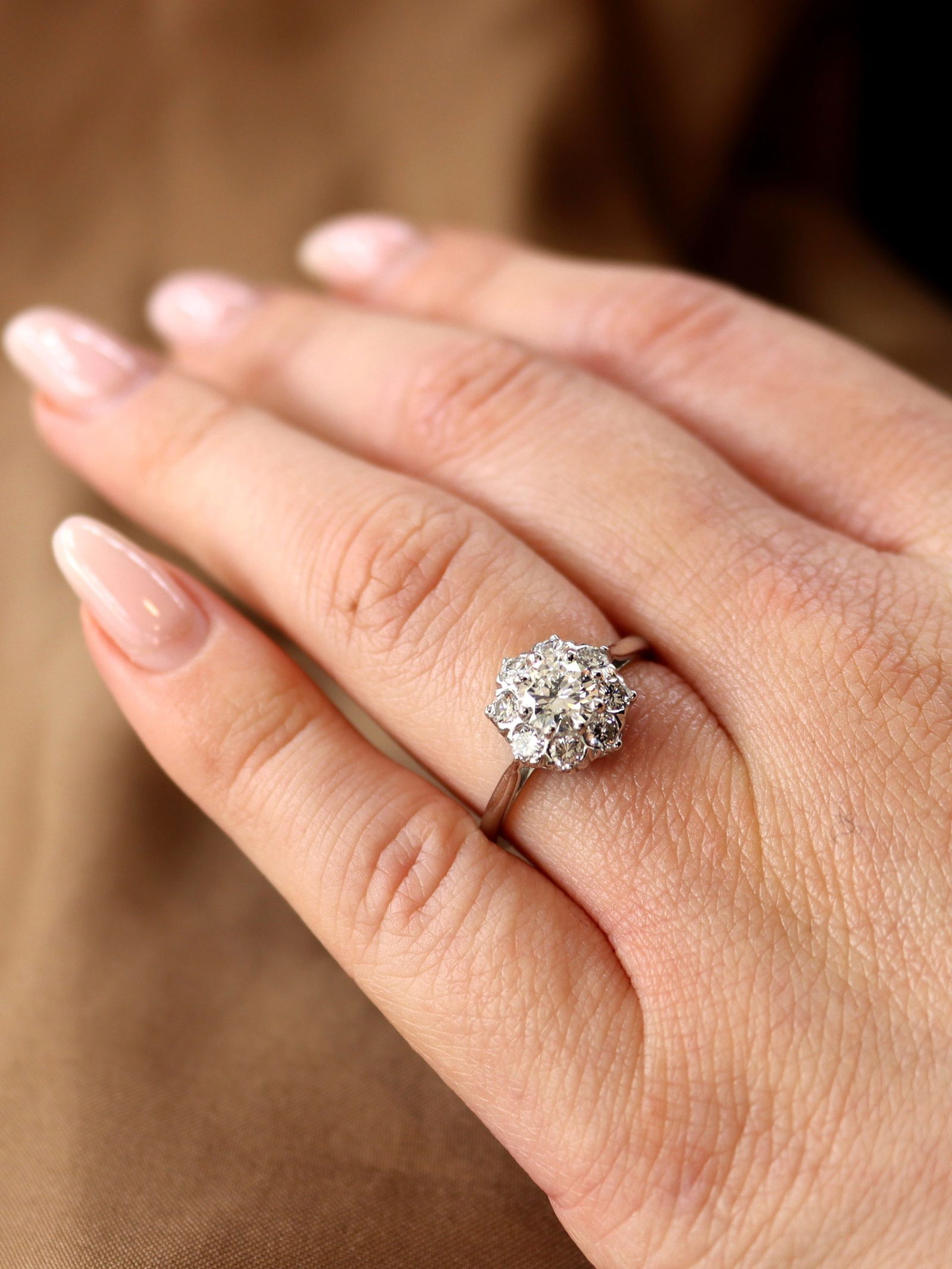
Jewellers used smaller stones but added more embellishment to create the illusion of a larger diamond or created rings with higher setting to force perspective and cluster arrangements. This diamond cluster ring has a feature 0.74ct diamond at its centre but surrounded by a further 8 diamonds and metal work, creating the illusion of larger diamond!
1950s Engagement Rings
In 1948, De Beers launched their ‘a diamond is forever’ campaign, successfully making diamonds and only diamonds at the forefront of everyone’s mind when it came to picking out an engagement ring by the 1950s. Proposing with a diamond ring became the norm with solitaire ring popularity skyrocketing.
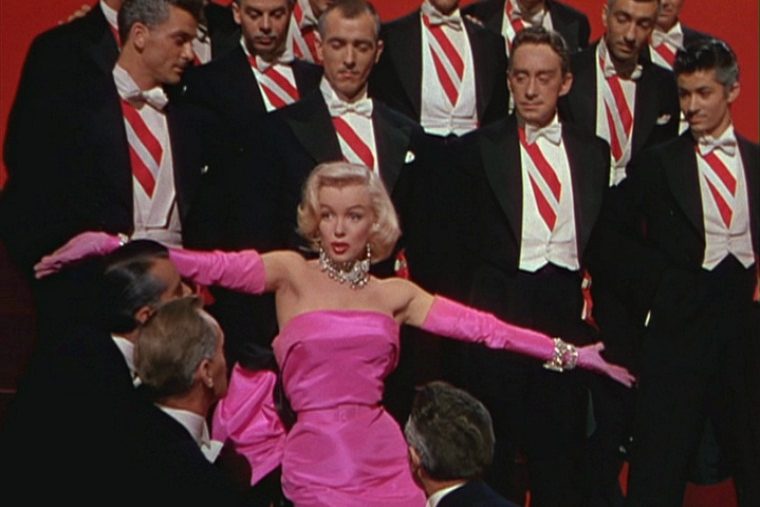
Marilyn Monroe singing “Diamonds are a Girl’s Best Friend” in ”Gentlemen Prefer Blondes” (1953). Via Public Domain
It’s worth mentioning the celebrity influence during this era on the cut of the diamond. At a time of Hollywood glamour, actresses like Elizabeth Taylor and Grace Kelly kick-started an emerald cut diamond obsession that continued through the ‘60s. Grace Kelly was presented with a second engagement ring from Prince Rainier III of Monaco – a large 0.47-carat emerald-cut diamond that she wore in her final film high society that stunned audiences! 1950’s engagement rings often focus on large feature stones and decoration to emphasise this!
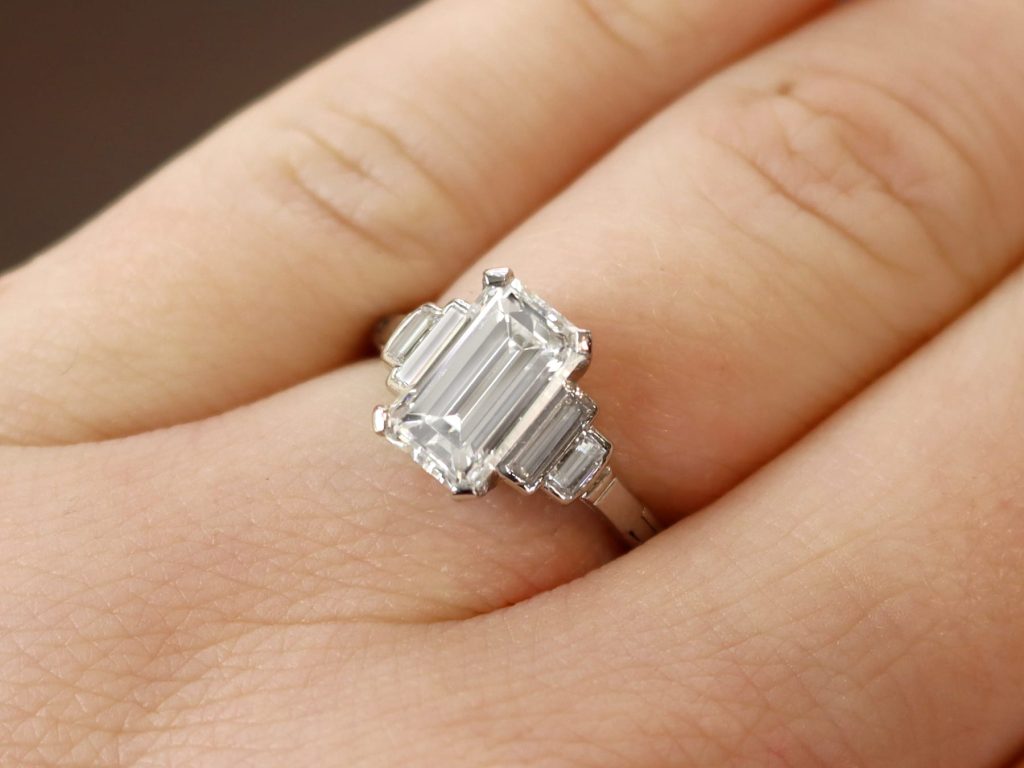
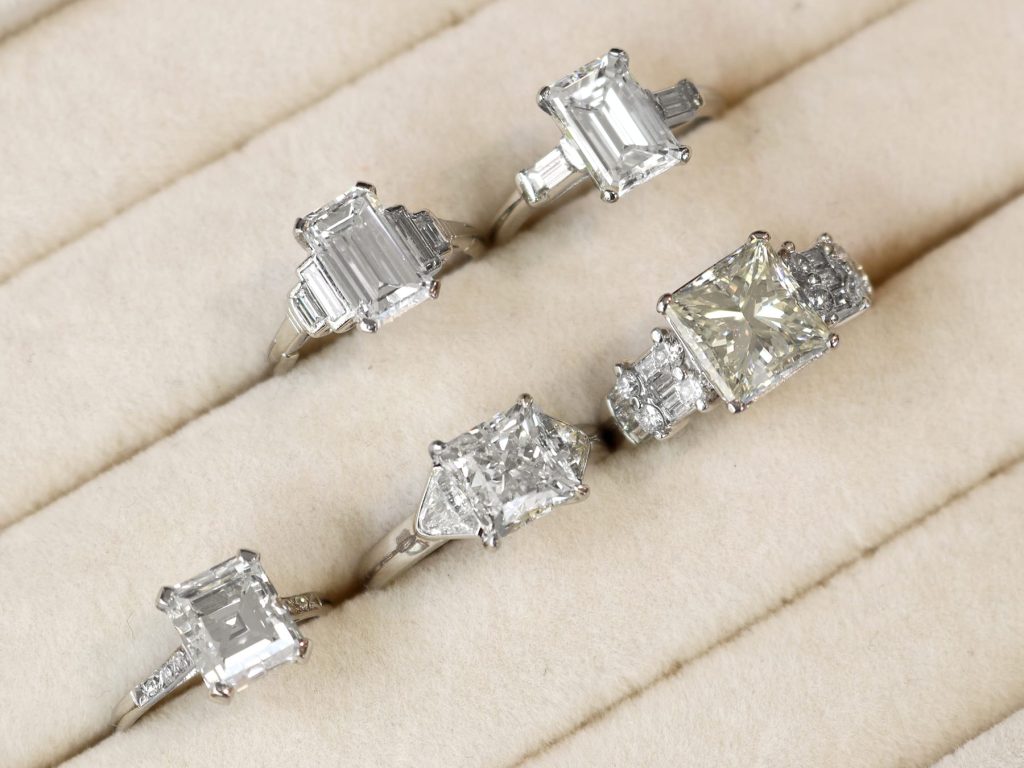
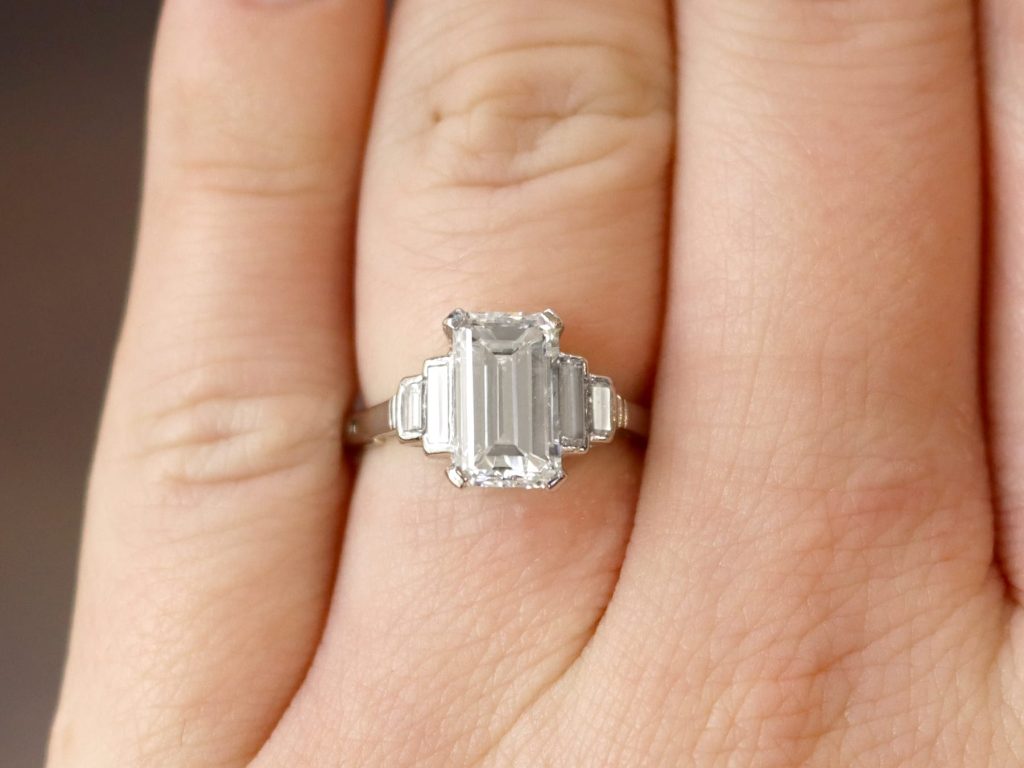
1960s Engagement Rings
The sixties sparked a new era for engagement rings, moving towards more extravagant designs! The emphasis on showcasing the feature stone that dominated the 1950s continued in the ’60s, but the cuts evolved. Marquise, oval, and pear-shaped cuts gained popularity alongside the classic round cuts.
This era saw the rise of larger, more extravagant rings, often set with geometric or custom-designed settings to highlight the feature stone. The mantra “the more sparkle, the better” defined the decade, with cluster and halo settings becoming widely favoured, enhancing the brilliance and size of the diamond.
The counterculture movement also influenced jewelry designs, with more organic and unconventional elements, though this trend was more pronounced in casual fashion and accessories. Overall, 1960s engagement rings marked a departure from the minimalist styles of earlier decades, embracing bold and colourful choices that mirrored the dynamic shifts in society and fashion of the time.
Engagement Rings of the 1970s
Jackie Kennedy Onassis’s marquise-shaped ring given to her by her second husband in 1968 pushed this cut into the 70s, with the square shape of the princess cut following shortly behind. The princess cut, which first gained attention in the 1960s, surged in popularity during the 1970s. Not only was it admired for its geometric modern look, but the princess cut was also more cost-effective than the traditional round cut, as it allowed jewellers to retain a larger portion of the original diamond, reducing waste. This made it a favoured choice for those seeking both elegance and value during the era.
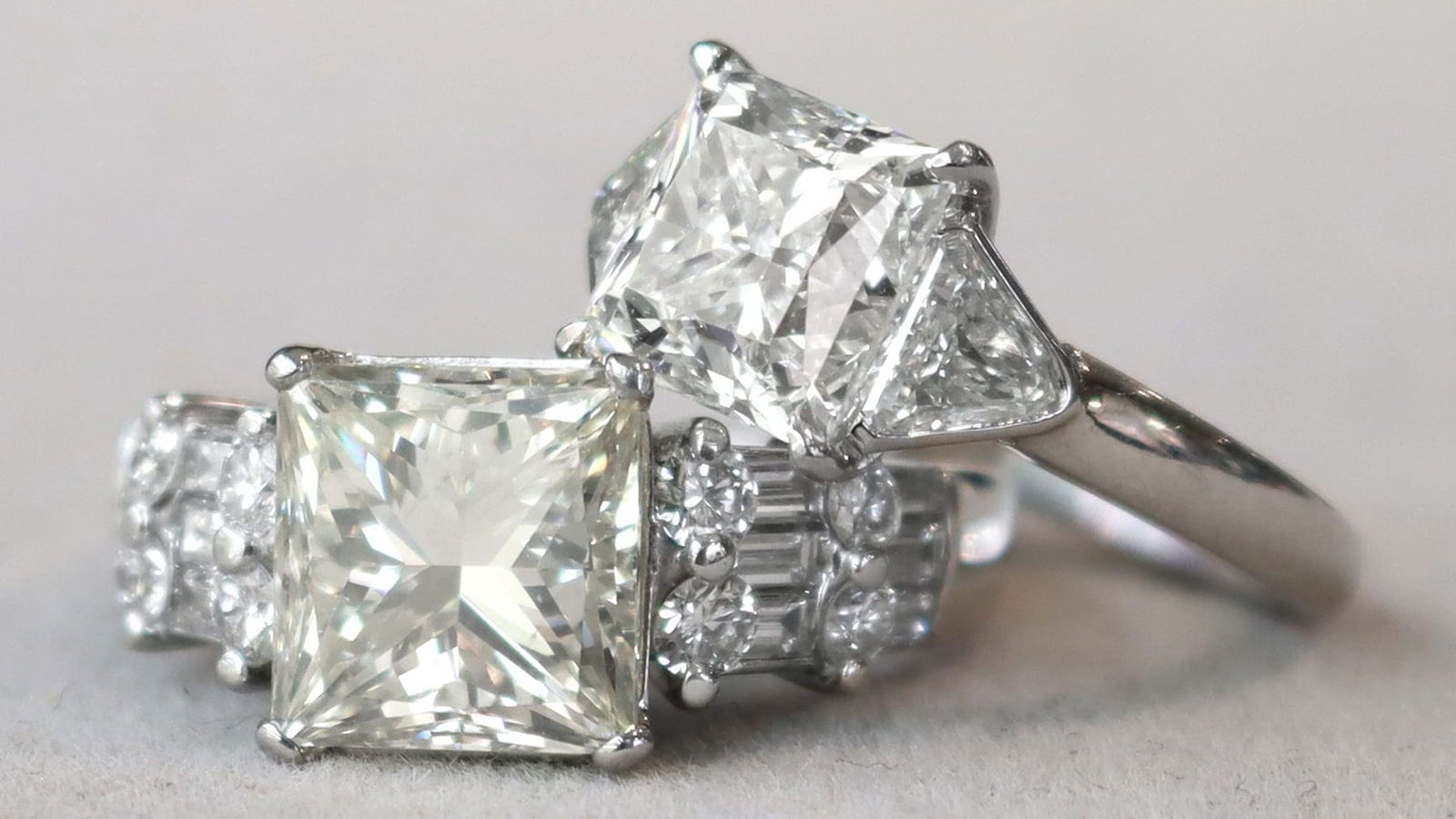
Another important development in the 1970s was the rise of matching wedding sets. It became increasingly common for couples to purchase coordinated engagement rings and wedding bands, often with complementary styles and metals, to create a harmonious look for both rings. The matching sets were seen as a symbol of unity and commitment, with the engagement ring and wedding band seamlessly fitting together.
1980s Engagement Rings
In 1981, Princess Diana became engaged to Prince Charles, receiving a stunning sapphire and diamond cluster ring. This iconic ring sparked waves amongst fiancées-to-be, with everyone dreaming of becoming a princess with a similar style, making a significant comeback for coloured gemstones. The sapphire has always been favoured amongst royals, for its deep, captivating colour and historical significance, and became embraced by couples seeking a unique alternative to the traditional diamond.
The 80s built on the bold style of the 70s, bringing an iconic maximalist style with decorative engagement ring settings, side stones, and even more diamonds.
1990s Trending Engagement Rings
By the 90s the minimalist trend was in. Simple settings with large feature stones were trending at this time, spotted on celebs like Victoria Beckham who’s first engagement ring (out of 24!) from David Beckham was a large marquise cut diamond ring and Jennifer Lopez, who received a pear-shaped diamond on a gold band from Ojani Noa.
Cooler toned white metals were in, often paired with baguette cut shoulder diamonds – a nod to the side stones of the 80s but with the minimalist 90s stylish look!
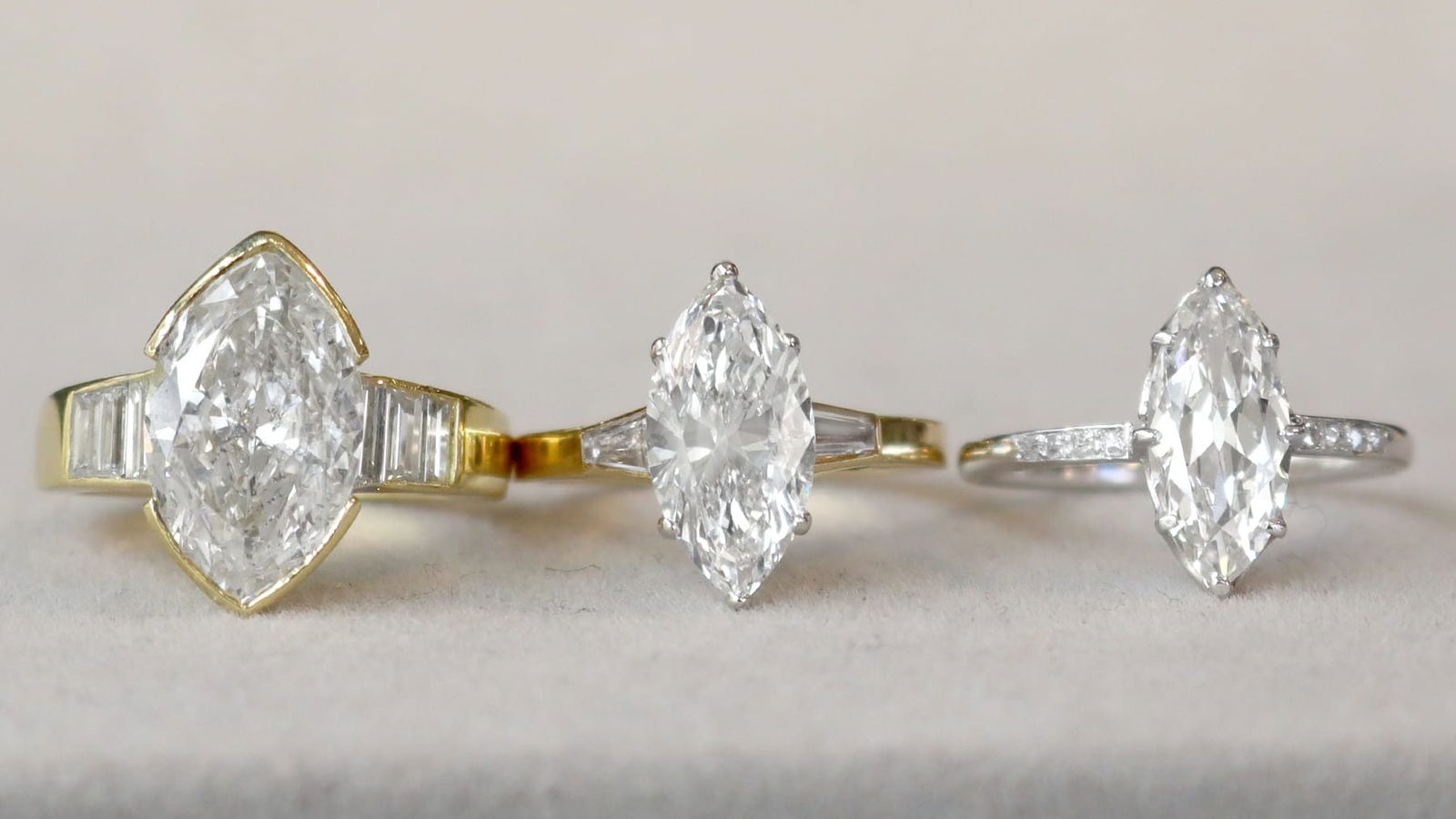
2000s Engagement Rings
The early 2000s saw a shift toward customization and personalization in engagement rings. With advancements in jewelry design and technology, couples sought unique settings, coloured gemstones, and personalized engravings to reflect their individuality.
The pavé setting became huge in this decade. The simple solitaire got a sparkling upgrade with pavé diamond bands or creating a halo around the feature diamond. Celebrities favoured the additional bling, often opting for cushion cuts with a diamond halo of extra sparkle!
Celebrities played a big role in influencing engagement ring styles, with standout rings like Ben Affleck and J.Lo’s pink Harry Winston diamond, Beyonce’s emerald cut solitaire (with a diamond band of course) or Khloé Kardashian’s huge radiant cut diamond, with sparkling halo obviously!
Engagement Ring Styles of 2010s
The 2010s saw a resurgence of vintage-inspired designs, with antique-style and Art Deco engagement rings making a comeback. Rose gold is symbolic of this decade, lending itself to the vintage style revival with the metal colour popping in both engagement rings and iPhones! Matching your engagement ring and wedding band became outdated and people started to mix metals, with even the late Queen Elizabeth’s mixing her gold wedding band and platinum engagement ring.
Speaking of royals, Kate Middleton’s engagement kicked off the decade with her sapphire and diamond engagement ring, originally belonging to Princess Diana, sparking a renewed interest in coloured gemstones, making sapphires, emeralds, and other non-traditional stones highly sought-after. By 2018 everyone from Katy Perry to Lady Gaga had a coloured gemstone ring!
2020s Engagement Ring Trends
We’ve seen so many trends coming back this decade! The minimalist trend come back over the past couple decades with simplified claw settings and fine ring shanks. The oval cut is having a moment, with everyone wanting a 6-8 carat solitaire like Hailey Bieber’s.
What’s next? We suspect a lot of East to West set rings! Keep it simple with the minimalist solitaire but switch the orientation to create an unsuspecting impact! That being said are chunky engagement rings also on the rise? Dua Lipa’s engagement ring reminds us of some of our chunkier Victorian pieces and we’re here for it!
Browse our antique and vintage engagement ring collection to find your dream ring today!

